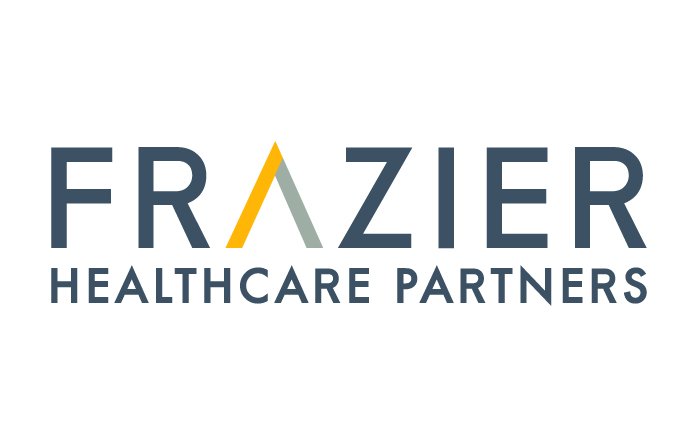By Rick Starks
My life began in 1954 in a Shreveport, Louisiana military hospital. Having a circumcision at birth led to the discovery of my severe hemophilia. Eventually, my mother, grandmother, three aunts, and a younger brother were also diagnosed with hemophilia.
I don’t remember much of my early childhood, but a lot of it was spent in hospitals. Throughout my life I have experienced the full gamut of treatments beginning with whole blood transfusions administered with reusable steel needles that were autoclaved and put back into service, to the current regimen of long-lasting factor infusions every two weeks.
Supposedly, there are approximately 200 people with severe hemophilia over the age of 65 in the United States. I consider myself fortunate since I am one of the survivors.
Many think my life with hemophilia has been difficult, but it’s the only life I know. Though I might not have always handled it wisely, I have dealt with hemophilia my entire life. Unexpected bleeds, personal setbacks, and disappointments are things people with a severe bleeding disorder experience in everyday life. I have reconciled myself to my condition, making peace with it as I grew older and accepted the challenges as they arose.
So, how did I arrive at my present state of mind? We need to start at the beginning.
My earliest memories are of the loneliness felt being in the hospital. Being the oldest in a family of three boys and three girls, my parents couldn’t visit often. Mom needed to care for my younger siblings while Dad was always working, often two jobs to support our family. Going from a bustling houseful of kids to a sterile hospital setting with few visitors was isolating and frustrating, to say the least. But for my parents, there were just not enough hours in the day to squeeze in anything but short visits. It must have been a tremendous burden on them.
My school years weren’t very exciting either. Often during gym class, I was forced to watch from the sidelines. As a youth, I was picked on and bullied relentlessly. This continued through high school. Nothing was ever done about it, but it did teach me to endure, and I learned it said more about them than me.
In high school, I had the opportunity to see a movie that motivated me to become better. My uncle had taken me to a theater to see Enter the Dragon. I will never forget it. It was the first time I had a peek into the world of martial arts. I felt inspired, and at the age of 18, began training. I began to develop physically, becoming stronger, more flexible, and more confident. I realized my mind would give up long before my body. Well, except for bleeding episodes. Those continued, and during this period, I bled a lot. I would train, get injured, go to the hospital for treatments, heal, and train again. It was a constant merry-go-round. Despite all odds, my skills improved and eventually led me to earn a Tae Kwon Do State Championship.
Knowing they would disapprove, I hid my new-found interest from my parents, doctors and nurses. I kept my hemophilia a secret from the Tae Kwon Do instructors as well. I viewed hemophilia as a weakness and feared the instructors would refuse me as a student. This secrecy has become one of my greatest regrets. Looking back, I could have saved myself a lot of pain and joint damage had I been open about my health issue.
Ultimately the injuries and bleeding episodes caught up with me. By the time I was 40, I had both hips replaced. My ankles were so bad that I could no longer walk more than a couple of blocks. I had to give up Tae Kwon Do, something that I deeply loved. It felt like a part of me died at that point.
In my late 50’s, I had become quite sedentary, “blossoming” to 260 pounds, which led to a heart attack. I guess I was fortunate again as it proved to be a structural defect not caused by anything else. However, my blood pressure was high, and I was placed on medication to control it.
That’s when the fighter in me kicked in again. I began looking for a form of exercise that was gentle yet effective. I discovered Tai Chi. My initial experience post heart attack was watching, learning, and moving to Tai Chi DVDs. Then I attended a Tai Chi seminar and found my first instructor. He taught me to move within myself, to accept my limitations, but to believe they were only temporary. He pushed me and taught me to enjoy life again and inspired me to become an instructor.
Through Tai Chi, I learned to recognize my patterns of thought and action. I became aware of my body and my movements. I learned to be mindful, to understand my strengths, and to recognize and overcome my weaknesses.
Today, I feel as well as I did in my 30s and 40s. My blood pressure returned to normal, and I was able to discontinue the medicine. In fact, my blood pressure is as good now as it was in high school. I adhere to my clotting factor prophy schedule religiously, but other than that, I am medication free.
Both my ankles were replaced in 2019, making movement a pleasure again. I walk at least a mile or two daily and continue to train in Tai Chi. I meditate daily and play guitar and bass guitar for the artistic part of my life. I believe for a peaceful, contented life you must honor your body, become spiritual in some form, and embrace an art form.
As we age, I believe these are a few important guidelines:
Live in the present moment. Often, what we remember are the most painful aspects of our past, but it has nothing for us other than a way to keep us from repeating it. The future is not to be of concern since it hasn’t happened yet, and most of our worries won’t happen. Be in the now.
Wake up grateful. Learn to develop a sense of gratitude and wonder. Arise with a feeling that the day is yours. Expect the best every single day. Get up, shower, and get dressed. Turn the day into a search for something wonderful. Don’t let a bad moment ruin your entire day.
Smile more! Smiling can actually change a bad mood! Share a smile and a kind word. It makes you feel better and can change another person’s day completely.
Get rid of something every day. I try to eliminate something every day that hasn’t been used for a while, or that can be useful to someone else. It can also be a thought or habit. Give up the idea of your limitations!
Don’t quit. It is never an option. Just giving up one time can be the beginning of a habit.
As we progress through life with a bleeding disorder—and there will be more than 200 of us in the future—we must set an example of self-care. Not just as an example for future generations, but to maintain our happiness and peace of mind today.
I plan on living to 120. Will you join me?
Stay informed on the latest trends in healthcare and specialty pharmacy.
Sign up for our monthly e-newsletter, BioMatrix Abstract.
We value your privacy. Review our Privacy Policy here.





